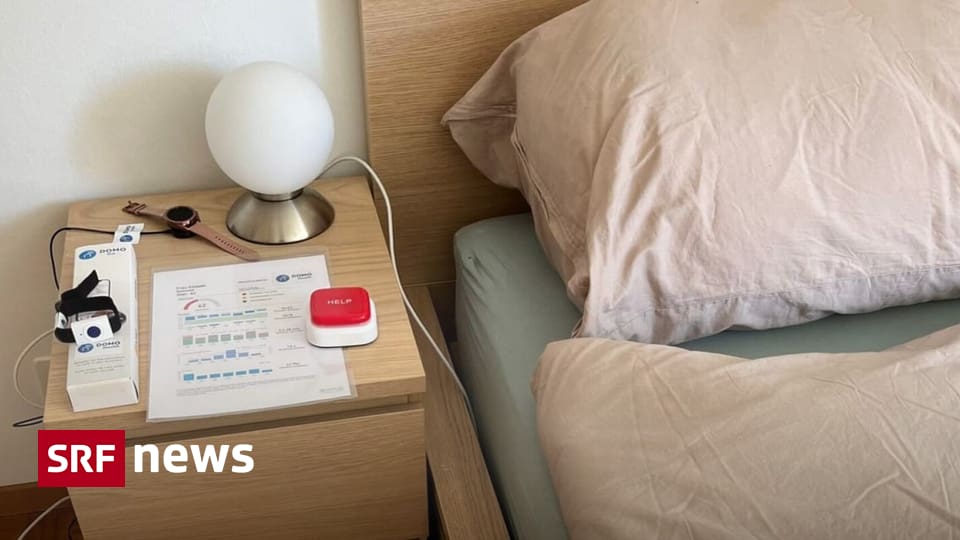Unemployment in China is rare. But there is a worrying difference between age groups: the unemployment rate among young people is at an all-time high – despite or precisely because of their good education.
19.07.2023, 06:4219.07.2023, 07:29
Xi Jinping once promised more education and reduced poverty. Today we know: Xi does not make empty promises. China’s youth are more educated than ever before and extreme poverty has fallen sharply. Nevertheless, more and more Chinese are doubting his father’s policy of anti-poverty campaign. This is shown by the high youth unemployment which highlights the dark side of the Chinese “economic miracle”.
Burned out of work
More education – Xi has kept this promise. China’s youth Measured by degrees Educated like never before. Nevertheless, many university graduates have trouble finding suitable employment.
One in five 16- to 24-year-olds is unemployed – these are official numbers only. Record number of graduates: Due to the pandemic, many final exams have been postponed. Millions of college graduates Hence the late entry into the labor market. China’s economy is reeling at the moment.
“There are many graduates. And things are getting worse in the IT sector. So I’m doubly affected,” says Shi Wei, a 24-year-old software developer from Hangzhou who is looking for work as a web developer. For SRF.
Undergraduate and graduate students are celebrating their graduation from Renmin University in Beijing in June 2023.Image: EPA
By 2023, 11.6 million people are expected to graduate from universities and colleges across China.Image: EPA
Life as a “walking corpse”.
Due to unemployment, young professionals accept lower wages and overtime. This was the experience of Jack Zheng, 32, who was employed by a Chinese technology company. Every day, outside of his working hours, he had to answer about 7,000 text messages like himself to the BBC said. He describes this amount of work as “invisible overtime,” which is expected but not compensated. I had to quit my job because I didn’t get better. The stress gave him a bad skin condition.
“I lived like a walking corpse.”
July
Julie, a 29-year-old game developer, was also burned out. In fact, he wanted to quit his 16-hour job for a job with better working conditions. But it didn’t get that far. Within two weeks, he had written more than 40 applications and received two invitations for interviews, China tells the BBC. But, no offer was received. However, as she could not bear the heavy work pressure, she quit.
Pressure, more pressure, more pressure
The pressure to work is not unknown only in China. According to the 2018 Work Stress Index for Health Promotion Switzerland, a quarter of the working population in Switzerland suffers from stress. However, nobody talks about burnout. Are you a victim and want to break the barrier in your story? Then get in touch at [email protected].
More and more boomerang babies
To finish the job, Julie returned to her parents. Since then, he has left a monthly salary of 2,000 yuan (approximately CHF 240). Her parents now pay for her daily expenses, and the young woman runs the household instead.
Julie is not alone in this conclusion. Chen Dudu, 27, also quit his real estate job. “After I paid the rent, there was nothing left of my wages,” he told the BBC. He returned to his parents, where he felt like a pensioner. Eventually she became self-employed.
“Otherwise I would have become a parasite for a long time.”
Sen
996 work week
According to reports, more teenagers suffer from burns in China. Given the poor work-life balance in China, this is not surprising. Officially, the 40-hour week applies in China. In fact, many Chinese companies work according to the 996 system – from nine in the morning to nine at night, six days a week. This corresponds to 72 hours of work per week. For this reason, critics refer to 996 as “modern slavery”.
Alibaba Group founder Jack Ma is one of the proponents of the 996 Workweek. “I personally see the 996 as a great boon for professionals.” Ji shares the same attitude. Because of the high unemployment rate, the General Secretary of the Communist Party repeatedly issued the following appeal: “Eat bitters!”
Without complaint, young people must endure hardships to reap the rewards, Ji said.
Pray for a better future
Young people want nothing to do with rewards. At least there is no “false flat” movement (dong bing). The keyword (including memes) is found on Chinese social media sites. The movement rejects social pressures to reorganize and calls for a “flatter” lifestyle. In other words: earn less (and consume less) to rest more.
The term “Dang Bing” has spawned many memes on the social media site Sina Weibo.
This clip shows an earlier protest, with many protesters lying flat (身平).
The depositors are protesting against the collapse of village banks.
At the gate of the Banking and Insurance Regulatory Commission, Zhengzhou.https://t.co/mNq9Vt0oMe
— Sabina Knight (@SabinaKnight1) July 10, 2022
However, given the changing demographics, the pressure on young people’s shoulders is unlikely to ease. The OECD predicts that by 2035, more than 20 percent of China’s population will be over the age of 65.
A woman prays at Patong Temple in Wuhan, China, January 2021.Image: EPA
China’s answer to an uncertain future: prayer. According to a ticket portal, the demand for temple tickets has increased threefold, especially among the youth. Reported by ZFD. This is unusual for a secular People’s Republic, where people must trust only the Chinese Communist Party.
You may also be interested in:

“Wannabe pop culture fanatic. Zombie advocate. Entrepreneur. Internet evangelist. Alcohol fanatic. Typical travel buff.”





More Stories
Choosing the Right Quality Management Software for Your Industry
If guests bring items: Can shower gel be packed from the hotel?
Digital Technologies for the Elderly: Increasing Aging at Home – News